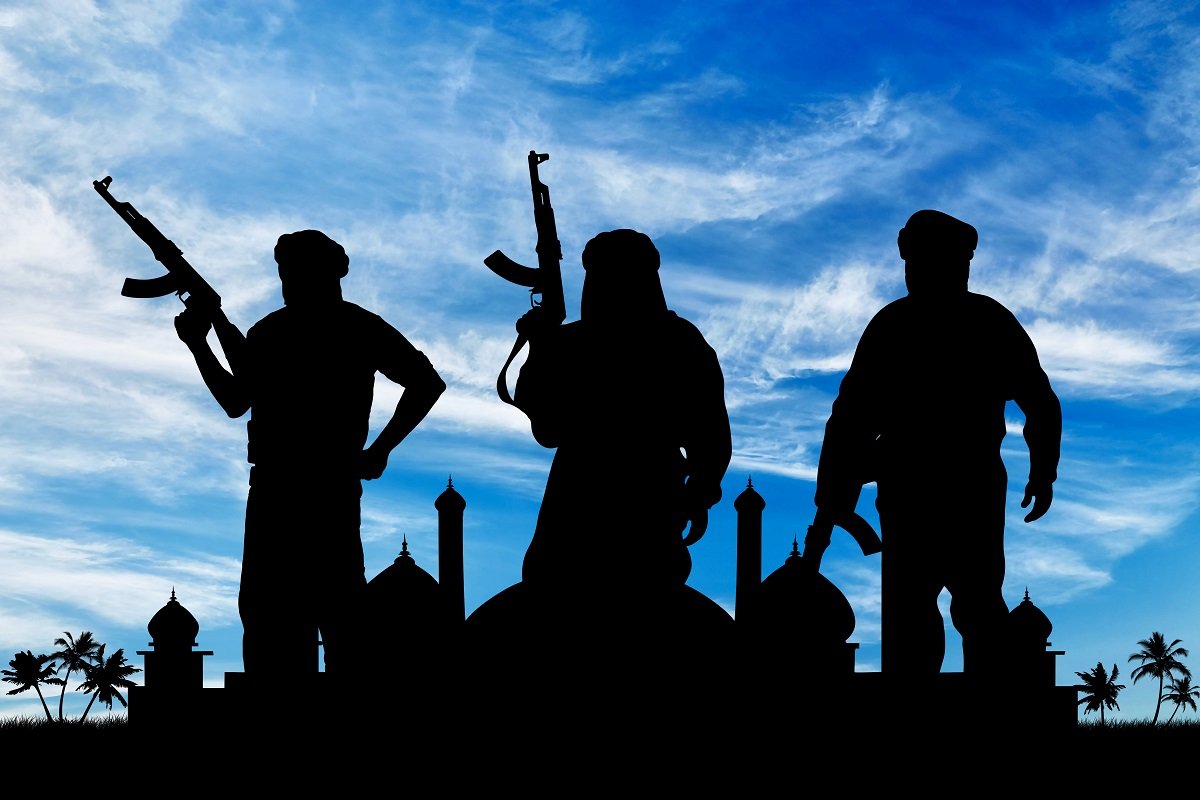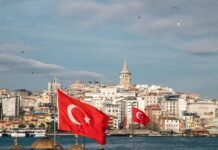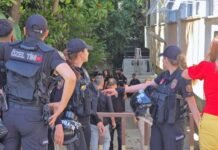By Abdullah Bozkurt
When Turkey’s autocratic President Recep Tayyip Erdoğan set his eyes to topple Bashar al-Assad and replace his regime with a proxy Islamist rule starting in 2011, his intelligence agency National Intelligence Organization (MİT) has come up with plans to mobilize Jihadists from all over the world to descend into Syria to join the battle in addition to training, arming and funding of Syrian Islamist groups.
Among the foreign-breed warring factions included special regiments of fighters from Central Asia, especially Uzbek and Uyghur origins, whom the MİT believed would come very handy in spearheading the fight against Syrian government. Turkish intelligence had helped these fighters to travel through Turkey, provided them with funding, logistical help, passports, and even arms. The stigmatized Uzbek diaspora, having suffered from the brutal repression at home front and scattered all over the world, was the perfect recruitment ground for Turkish intelligence officers who tapped on the lingering resentment among the youth groups within Uzbek expat communities.
The Islamist non-governmental organizations, some of them are shells for the MİT to cover up clandestine business dealings while others were heavily infiltrated especially among the leadership level, were used in this Jihadist drive. These NGOs have already taken interest in Uzbek expats for years, dealing with migration, residency, education and charitable works for them in Turkey and overseas. Two controversial Turkish charity groups International Humanitarian Relief (IHH) and İmkan-Der, İstanbul-based NGOs that were publicly accused by Russia at the UN Security Council for smuggling arms to rebels in Syria, have taken a lead in mobilizing resources for Uzbek, Uyghur and Chechens communities.
Three al-Qaeda linked Uzbek jihadist groups, Katibat al Tawhid wal Jihad, Katibat Imam al Bukhari and Ansar Jihad in Syria that draw most of its members from Central Asia have been supported by Turkey’s intelligence agency as part of its long-running schemes in propping up al-Qaeda affiliated groups in Syria. The confidential investigation in Turkey’s eastern province Van has already revealed how deeply the MİT involved in setting up training camps in Syria close to the Turkish border. In the meantime, as part of the public relations campaign, also funded by the MİT, the footages on military offensive by Uzbek Jihadist groups were often publicized in Turkish media, online outlets for years, inspiring more Uzbek expats in Turkey and other countries to join the fight.
What the MİT has been doing in Turkey was illegal and against the Turkish laws and that is why the clandestine operations were at times spotted and discovered by the national police intelligence, the main law enforcement agency in Turkey. In order to remove obstacles on his way, Erdoğan pushed several amendments to the intelligence bill through Parliament, empowering the MİT to engage in arms trafficking, prisoners swap and a broader immunity for actions by the intelligence officers. In addition to that, Erdoğan turned the police force upside down, purged tens of thousands of police officers from the force in order to remove what he saw a nuisance by the police force in front of his campaign to topple Bashar al-Assad.
Thanks to the investigations and judicial probes painstakingly done by the police and prosecutors who are now either dismissed from their professions or arrested on the trumped-up charges, we have a good idea how Erdoğan’s clandestine system of Jihadists work. For example, the investigation file No.2014/57689 by the prosecutor’s office in İstanbul which was later turned into an indictment with a case file No.2015/4008 exposed how Uzbek cell in Turkey works.
In a wiretap recording time-stamped for Nov.1, 2014 at 14:55:56 hours, Abdulhakem Mısırlı told Ebu Suheyf that Uzbek cell led by Ebu Musa received $30,000 from the Islamic State of Iraq and Levant (ISIL also known as ISIS and Daesh). Ebu Suheyf’s real name is Asaad Khelifalkhadr, a Kuwaiti national listed as the number one suspect in the 315-page indictment as a trafficker of Jihadists. Khelifalkhadr was detained in a police operation on July 10, 2015. He initially provided his name as Osamaa Hamit Isa to the police but the passport he provided listed his name as Asaad Khelifalkhadr. He was formally arrested on July 13, 2015 by İstanbul No.4 Criminal Court of Peace.
From the wiretap records, it is crystal clear that Turkey’s authorities had been eavesdropping on Ebu Suheyf’s communications, keeping a tab on how he had been moving suspected Jihadists from Europe and Arab countries through airports and land border gates in Turkey en route to border provinces on Turkish-Syrian border. In other words, Turkey has been watching every move he and his associates were making. Yet they did not interrupt into his operations until pressure was intensified from both the US and Russia.
In the wiretap recorded on January 11, 2014, Ebu Suheyf was talking to an unidentified man about a man and woman, ISIL militants who were detained by the Greek police on Turkish border and was taken back to Athens. They discussed how to resolve the matter discreetly and decided to enlist the help of Ebu Usame who was identified another ISIL operative as providing passports for Jihadists in the indictment.
That suggests the ISIL network is capable of moving Jihadists from Greek border or through airports in Turkey using forged passports and travel documents while Turkish authorities turning a blind eye on them. Perhaps, that explains how Rakhmat Akilov, Uzbek national who killed five people when he deliberately drove the stolen vehicle into crowds in the Swedish capital, entered Turkey and exited without any record on immigration. He might have been easily provided with the help by this network to make him easily travel back and forth and cover his tracks along the way.
Yet, Turkish court ignored the overwhelming evidence incriminating Ebu Suheyf, including wiretap records that detailed how the network collected Jihadists from an İstanbul airport and other meeting points in Turkey and helped them travel to border provinces to cross into Syria or return from Syria to travel for European destinations. On March 24, 2016, the İstanbul 13th High Criminal Court decided to release Ebu Suheyf pending trial and he went missing immediately. It is simply impossible for the panel of three judges to rule for the release of his and all the other ISIL suspects unless they were directly signaled by the government to do so given the fact that the judiciary is tightly controlled by Erdoğan regime in Turkey.
The trafficking of Uzbek Jihadists has taken place not only through European destinations but also via Iranian border. For example, in a secret recording dated October 31, 2014 at 15:51:41 hours, Yakup Uzun, a Turkish trafficker who found safe house for foreign Jihadists and help them move to Syria through his contacts, talks to an unidentified person about how to move an Uzbek family that came through Iran and now staying at Turkey’s Eastern province Van. Uzun said the family was brought to Turkey by smugglers for a cost of $3,500 and it was urgent to move the family out of Van.
On Nov.21, 2014, Kerim Akyüz, another ISIL suspect who appears to have been tasked by ISIL to take care of Uzbek and Azeri Jihadists and transferring them to Syria, received a phone call from an unidentified Turkish person in Syria. The unidentified person appears to be very close friend of Akyüz and told him there was about 500 Turks including Uzbeks in the place run by the ISIL in Syria. They talked about how shaving beards and changing phone to evade detection while travelling back and forth on Turkish Syrian border.
On another wiretap dated Dec.2, 2014, Akyüz talks to a man named Ammar about arms, walkie-talkies and military materials and how to move them to Syria. Ammar, apparently lives in Syria, also said a bag was sent to Syria from Uzbek community in İstanbul’s Pendik district, a place where Uzbek migrants concentrated in İstanbul. According to Süleyman Tarık Balyalı, Pendik district council member from the main opposition Republican Peoples Party (CHP), Uzbeks and others were being shuttled on busses from Pendik to Raqqa, the stronghold of ISIL.
In fact, on October 2015, police raided ISIL cells in Pendik and detained 53 people on ISIL charges, mostly Uzbek and Tajik descent people. Of these 53 people, 24 were children under 18 years old and were taken to children protective services before they were released. After questioning at the police, 18 of 29 were released. 11 were held reportedly on problems with the residency permits. Police found out that Uzbeks in Pendik rented basement flats and turned these places into a training and indoctrination centers.
When Erdoğan tried to normalize Turkey’s relations with Russia following the shooting down of Russian fighter jet SU-24M on Turkish-Syrian border on Nov.24, 2015, Moscow insisted that Turkish government crackdown on these groups, something Erdoğan agreed in principle but never actually delivered fully on that pledge. In fact, some 150 Uzbek migrants were rounded up in İstanbul on March 10, 2017, on the day Erdoğan met Russian President Vladimir Putin in Moscow. Many of them were later released.
Likewise, before Erdoğan’s meeting with Putin on August 9, 2016 in St. Petersburg, Turkish police started detaining some 450 foreign nationals of Uzbek, Chechen, and Uyghur origins. As it was the case earlier, many were released after Erdoğan wrapped up his visit. Islamist organizations such as IHH, as well as Uzbek and Turkistan associations mobilized their networks to protest their deportations and pro-Erdoğan media run articles against their removals from Turkey.
It was the same game played out by Erdoğan right after İstanbul nightclub attack by ISIL militant Abdulkadir Masharipov, an Uzbek national, in the early hours of the new year that killed 39 people and injured 65 others. In the aftermath of the attack, many Uzbeks were detained in Turkey and some were even taken to the airport to be deported back to Uzbekistan. However, many were later let go. The case of Masharipov who was later captured by the police units showed ISIL militants were able to get help from Uzbek community in Turkey, draw logistical support in evading the detection.
An Uzbek militant was among three ISIL suicide attackers who bombed İstanbul’s Atatürk Airport that left 45 people dead on June 28, 2016. Three bombers opened fire to create panic outside the airport before two of them went inside and blew themselves up. The third militant detonated his explosives outside at the entrance to the international arrivals terminal. The attack appears to be professionally planned and required reconnaissance, intel and logistical support. All three bombers had reportedly no record of entry into Turkey, suggesting that they traveled illegally or on forged documents. An indictment was filed against 45 suspects in the case on February 2017.
Despite the threat posed on Turkey’s security by foreign Jihadists, especially Uzbek cells, Turkish government does not appear to have been cracking hard on these groups in Turkey or in Syria. In fact, according to Turkish Interior Ministry’s data, between 2011 and 2016, only 53 Uzbek were detained and 11 were arrested on charges of ISIL. It is now known how many of those arrested 11 suspects were later let go as many ISIL arrestees get released in the trial hearings.
Perhaps that confirms the view that MİT has actually been working with radical Uzbek, Uyghur and other Central Asian cells as proxy groups to promote Erdoğan’s Islamist policies in Europe, Asia and Middle East. After all, Erdoğan repeatedly warned that western capitals won’t feel safe when they turn against his government and criticize him on his actions and policies. That may explain how ISIL easily managed to use Turkey as springboard to stage their attacks in Brussels, Paris, St. Petersburg and Stockholm.
For all we know, some of the attacks in Turkey attributed to ISIL might have been all false flags by MİT to take the international pressure off on Erdoğan’s back for his years-long support to Jihadist groups and deflect the attention away from Turkey to serve political interests of Erdoğan. After all, it was Turkish intelligence chief Hakan Fidan who suggested orchestrating mortar attacks on Turkish targets by Jihadist groups in Syria as a false flag to justify Turkish military intervention into Syria, according to the authenticated leaked voice recording on March 2014.
During the meeting held in Ankara in January 2017 with the attendance of some 70 military commanders from Syria on the eve of Astana ceasefire talks, Turkish officials reportedly urged them to distance themselves from Uzbek Jihadist groups. That does not correspond to any reality on the ground as many Turkey-backed Jihadists groups enlisted Uzbek fighters and even Uzbek-led Jihadist groups are mingled with others and fighting next to other Jihadist groups in trying to topple Assad. For example, al-Qaeda affiliated Uzbek groups actively work with Turkmen fighters in the north of Syria. Therefore, the suggestion of separating them means nothing other than giving a way for plausible deniability on the part of Turkish government.
Mysteriously, Uzbek suspects were only located when MİT really wanted them to be found as it was the case in March 2017 when two Uzbeks identified as C.C. and İ.D. caught with AK-47 and ammunitions in a safe house in İstanbul’s Kağıthane district. There is a reasonable body of evidence out there to conclude that Turkish intelligence has actively organized Jihadist groups, supported them with logistics, arms and funds, has been intimately aware of their operations, and decided to liquidate some assets only when it served to political masters’ interests.
May 9, 2017















